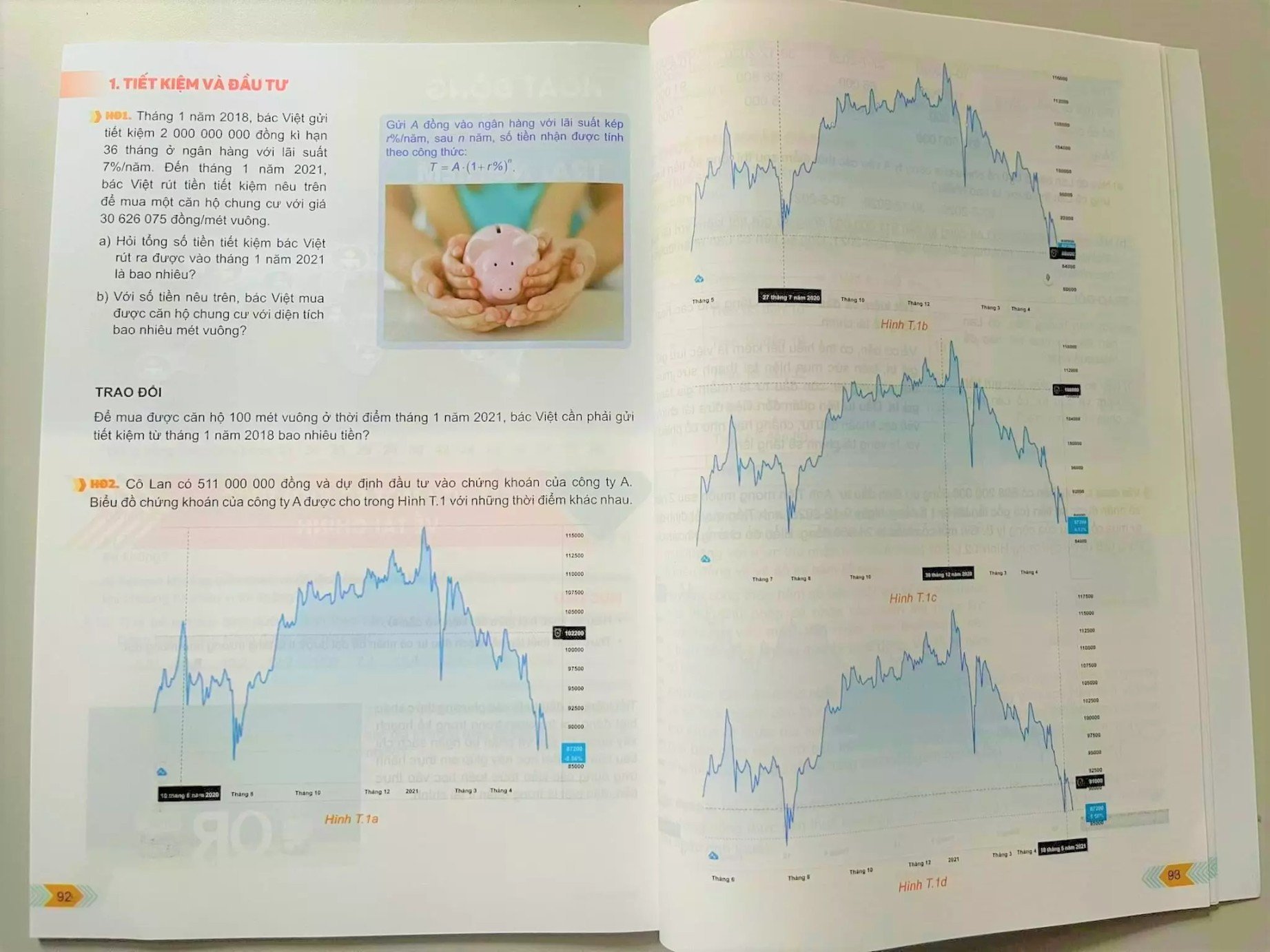
An exercise about securities and investments has been circulating on the internet. The exercise is found in the mathematics textbook for 10th graders in a lesson about saving and investment.
“Ms Lan has 511 million and she plans to invest in securities of A Company. The question is how much money she will collect if she sells the stocks at different moments."
“The second question is how much profit Lan will make if she deposits this amount of money at banks instead of pouring money into stocks."
A chart showing the stock price performance of A Company is attached. Students are asked to discuss which investment channel can bring the highest profit.
This information has raised controversy. Some parents say the lessons are unsuitable to 10th graders who have limited knowledge, and are more suited to university students majoring in business and economics. They said it is too early to teach teenagers how to make investments.
Other parents said it is good to give such lessons to 10th graders.
“It is a good thing if students can learn about financial investments early. This is useful knowledge that everyone needs to have,” a parent, an office worker, said.
He said that it was a bit late in the 10th grade. “It would be better if the lessons are given earlier,” he added.
A teacher at a high school in Hanoi also appreciated the lesson and the way the textbook is compiled. “Students need useful knowledge for their daily life,” he said.
VietNamNet found that the lesson in the mathematics textbook for 10th graders belongs to the set of books named ‘Ket noi tri thuc va cuoc song’ (Knowledge and Life) published by the Vietnam Education Publishing House.
The textbook foreword says the knowledge presented stems from situations in people’s lives and helps people solve their questions.
“So, studying math with this textbook, you will feel that mathematics is a close friend,” the foreword says.
The textbook is compiled by famous mathematicians and educators, including Ha Huy Khoai, who is editor in chief.
Earlier, a strong debate about whether to teach small children about earning and spending money occurred on social networks.
Thanh Hung